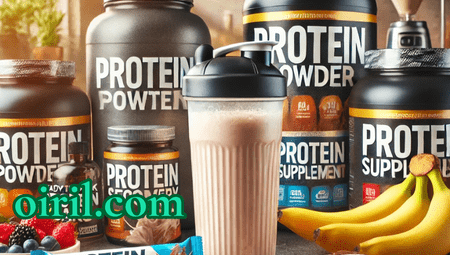Protein is an essential nutrient that plays a crucial role in building and repairing tissues, supporting immune function, and maintaining muscle mass. While it’s important to get an adequate amount of protein from your diet, some people may choose to supplement their protein intake with protein powders or other supplements. In this article, we will discuss the role of protein in your diet and the potential benefits and risks of using protein supplements.
The Role of Protein in Your Diet: Protein is made up of amino acids, which are often referred to as the “building blocks” of the body. There are 20 different amino acids, nine of which are considered essential because the body cannot produce them on its own and they must be obtained from the diet. Protein is necessary for:
- Building and repairing tissues, including muscles, bones, skin, and hair.
- Producing enzymes, hormones, and other important molecules in the body.
- Supporting immune function and overall health.
Sources of Protein: Protein is found in a variety of foods, including:
- Meat, poultry, and fish
- Dairy products, such as milk, yogurt, and cheese
- Eggs
- Legumes, such as beans, lentils, and chickpeas
- Nuts and seeds
- Grains, such as quinoa and amaranth
Protein Supplements: Protein supplements, such as protein powders, shakes, and bars, are popular among athletes and fitness enthusiasts looking to increase their protein intake. While protein supplements can be a convenient way to boost protein intake, they are not necessary for most people, as it is possible to meet protein needs through diet alone.
Benefits of Protein Supplements:
- Convenient source of protein, especially for those with busy lifestyles.
- Can help meet increased protein needs for athletes and those engaging in intense physical activity.
- Can be useful for individuals with certain dietary restrictions, such as vegans or vegetarians, who may have difficulty meeting protein needs through diet alone.
Risks and Considerations:
- Protein supplements are not regulated by the FDA in the same way as food or drugs, so quality can vary between products. It’s important to choose a reputable brand.
- Some protein supplements may contain added sugars, artificial flavors, or other additives. Look for products with minimal ingredients.
- Excessive protein intake from supplements can strain the kidneys and liver and may lead to digestive issues. It’s important to follow recommended guidelines for protein intake.
Protein is an essential nutrient that plays a critical role in overall health. While protein supplements can be a convenient way to increase protein intake, they are not necessary for most people and should not replace a balanced diet. It’s important to focus on getting protein from a variety of food sources and to consult with a healthcare professional before starting any new supplement regimen.



